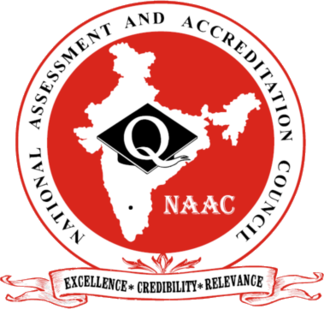
For an aspirant of B.Tech in Information Technology or B.Tech Computer Science, the choice of city is rarely cosmetic. It mediates access to internships, mentors, placement pipelines, and the everyday climate that shapes study and growth. Kolkata and Bangalore both offer compelling advantages, but they do so in very different registers. Here is a disciplined, evidence-led way to weigh them.
The industrial ecology: where the jobs are
Bangalore remains India’s pre-eminent technology cluster—home to a dense constellation of multinational R&D centres, unicorn startups and innovation labs. Recent industry analyses place Bengaluru among the world’s top tech hubs and note its exceptional concentration of AI, big-data and product engineering talent. This density translates into more frequent campus drives, higher recruiter footfall, and a broader menu of internships. Kolkata, by contrast, is a fast-maturing East-India technology node. The Salt Lake Sector-V and New Town corridors have become nucleus zones for software parks and global capability centres; high-profile investments and new campuses (for instance by marquee firms) signal accelerating demand for entry-level tech talent. For students who prefer fewer crowds but rapidly improving local opportunity, Kolkata is increasingly persuasive.
Academic ecosystem and research exposure
Bangalore’s advantage is not simply companies: it hosts world-class research and teaching institutions (IISc, IIIT-B and a cluster of strong private universities), which produce both talent and research-industry linkages. These institutes incubate advanced projects, open pathways to postgraduate study, and attract multinational recruiters. Kolkata too has prestigious anchors—Jadavpur University and several engineering colleges with rigorous curricula and research orientations—alongside private institutions that have built strong placement pipelines. A student who wants top-tier laboratory exposure and a tradition of scholarship can do well in Kolkata’s established universities.
Placements, internships and starting packages
Because Bengaluru aggregates product companies, AI teams, and startups, entry-level CSE/IT salaries and internship stipends tend to be higher on average. This is offset, however, by cost-of-living differences and intense competition for each slot. Kolkata’s placements are improving; local institutes increasingly report respectable averages and climbing highest packages, driven by the city’s expanding corporate campus footprint. Prospective applicants should review institution-level placement reports rather than relying on city-level rhetoric.
Cost of living and student budgeting
Quality of life matters. Aggregate cost-of-living indices show that maintaining the same standards is measurably more expensive in Bangalore than in Kolkata—housing and day-to-day expenses being the main drivers. For many families and self-funding students, Kolkata’s lower cost base can improve net ROI even if headline starting salaries are lower.
Campus life, culture and aspirational geometry
Bangalore is cosmopolitan, high-pace and career-centric: evenings are a mix of hackathons, meetups and startup networking. Kolkata offers an urbane cultural life with quieter neighbourhoods, a rich literary and arts ecosystem, and an emphasis on academic traditions—useful for students who value reflective study and cultural immersion alongside technical training.
The practical rubric: how to choose
No single city is universally “better.” Your decision should follow a hierarchy of priorities:
- Goals: Are you aiming for product-engineering roles, AI research, or stable software services? For product/AI ecosystems, Bangalore historically offers wider choices. For strong academic foundations with progressively improving industry access, Kolkata is compelling.
- Institution-level metrics: Examine the placement reports, average packages, internship conversions and industry partnerships of the specific colleges you’ve shortlisted. Institutional performance matters more than city averages.
- Cost & comfort: Factor living costs, hostel availability and family budget. A marginally higher starting salary in Bangalore can be eroded by higher rent and daily expenses.
- Career pivoting: If you expect to specialise in AI/ML, look for campuses with research labs, project courses and company linkages; if you prefer full-stack or services, evaluate recruiter footprints and GCC presence.
A note on Guru Nanak Institute of Technology
For students assessing Kolkata options, institutions such as the Guru Nanak Institute of Technology (GNIT) offer accredited B.Tech programmes in CSE/IT, modern labs and a structured placement ecosystem—an example of how private colleges in Kolkata are bridging academic rigour with industry engagement. Prospective students should study the institute’s placement reports and industry tie-ups when comparing offers.
Final counsel
Choose the city that best matches your short-term priorities and long-term orientation. If you prize immersion in a dense product-engineering ecosystem and maximal recruiter access, Bangalore is hard to beat. If you prefer a lower cost base, strong academic traditions, and a city whose IT opportunity is on a steep upward trajectory, Kolkata is a highly defensible, increasingly attractive choice. Whatever you decide, ground that choice in institution-level data, validated internships, and a candid appraisal of the life you want alongside your studies.




